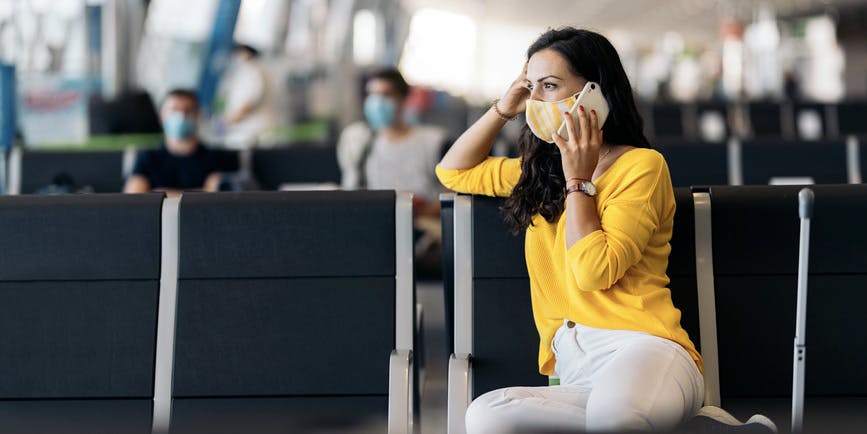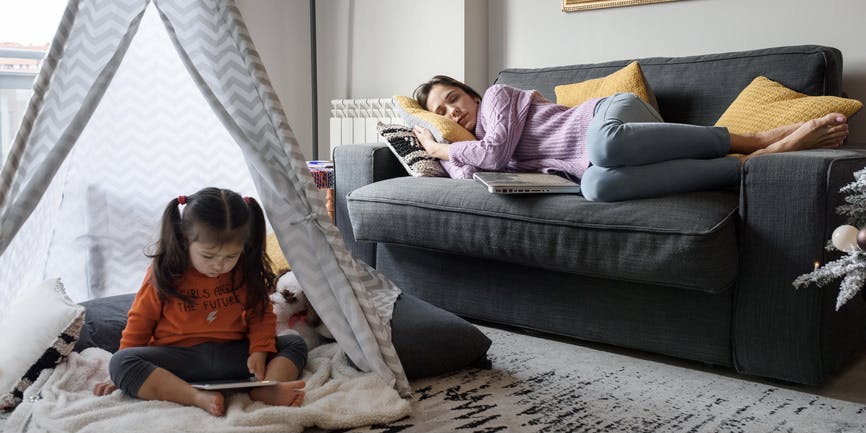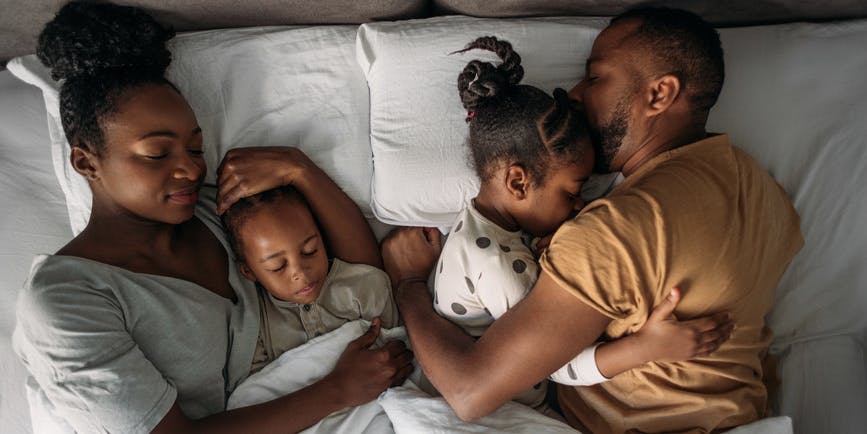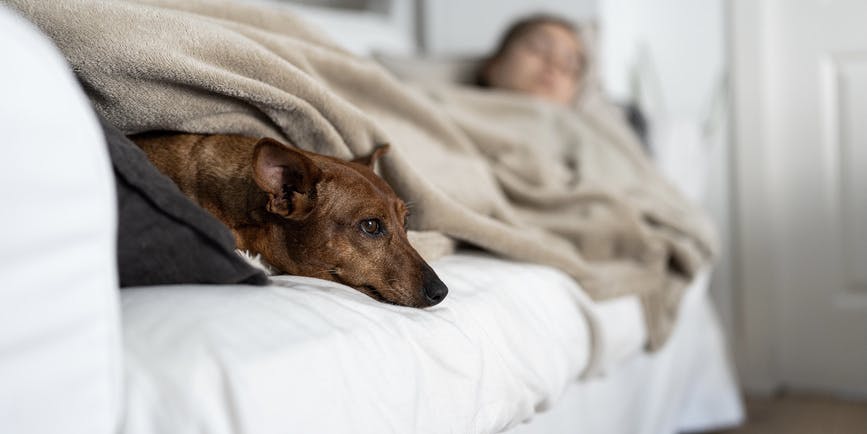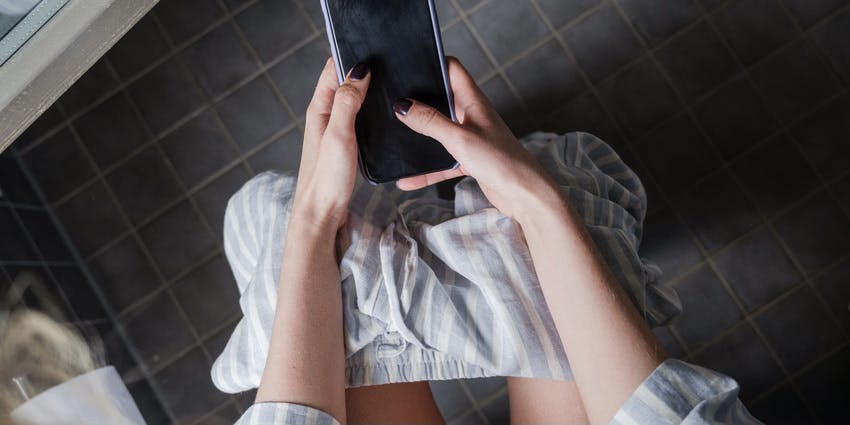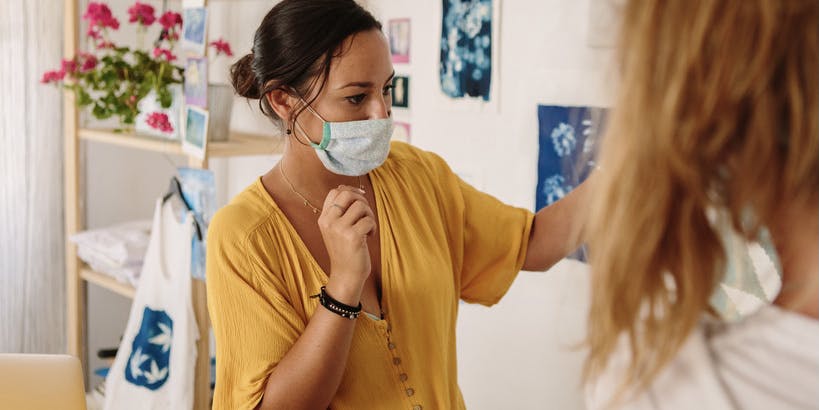
If your Covid test expired, can you use it anyway?
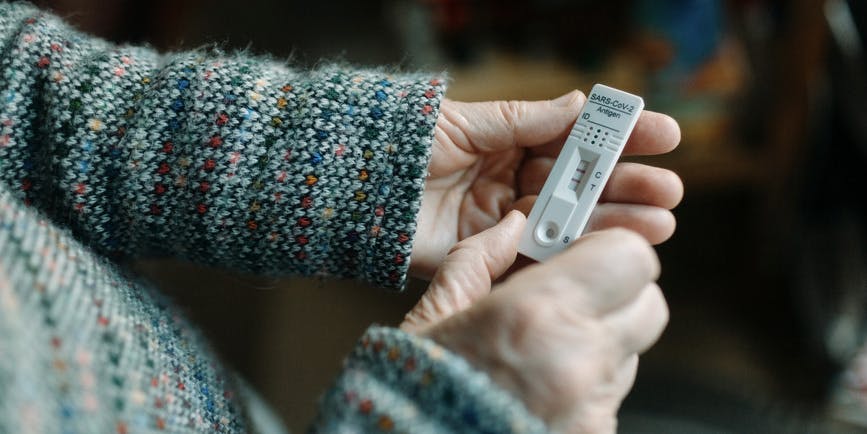
Topics
Key Points:
- At-home Covid-19 tests do expire. The components can break down over time, leading to inaccurate or invalid test results.
- The FDA has extended the expiration dates for many at-home tests. So check the official FDA website before you throw out an expired Covid test.
- If you test positive, there are treatment options available. Antiviral medications like Paxlovid and Molnupiravir can prevent severe illness in at-risk individuals.
At-home Covid tests were a critical part of controlling the Covid-19 epidemic—and they continue to help many people avoid severe illness and death.
These tests are fast, convenient and can be completed at home without special equipment. They’re so valuable that the federal government again offers all US households four free at-home test kits this fall of 2024!
But what should you do if you reach for an at-home test and realize it’s expired?
Here’s what you need to know about expired at-home Covid tests.
Plus, if you test positive, how Dr. B can help with convenient $15 online consultations for same-day Covid-19 treatments.
How do at-home Covid-19 tests work?
Most at-home Covid-19 tests are rapid antigen tests.
An antigen is any substance that triggers your immune system to respond by making antibodies. Antigens can come from viruses, bacteria, allergens or chemicals.
At-home tests pick up antigens from the SARS-CoV-2 virus (the virus that causes Covid-19).
Here’s how an at-home Covid-19 test works:
- Take a sample of mucus using a swab—usually from your nose.
- Mix the sample with chemicals using a vial or test card.
- Wait 10-15 minutes.
- The chemicals will change color if they detect any Covid-19 antigens.
To get the most accurate results, follow these tips:
- Be ready to test as soon as you experience symptoms.
- Check the expiration date to make sure the test is valid.
- Follow the instructions carefully.
- Insert the swab exactly as instructed. If you don’t collect a good sample, there may not be enough of the virus for the test to work correctly.
- If you don’t get a positive result, test again 48 hours later and on the fifth day of symptoms. (Most people with vaccine or infection immunity now reach peak viral load later in their infection than earlier in the pandemic.)
Do Covid tests expire?
At-home Covid tests do expire. A test past its original expiration date may not work correctly because its materials can degrade or break down over time, leading to an invalid result.
But many tests still work after the expiration date on the box.
When first offering at-home Covid tests, manufacturers were conservative with their expiration dates. The US Food and Drug Administration (FDA) has since extended the expiration dates for many tests. So before you throw out an expired test, check the official FDA website to see if your test date has been extended.
How accurate are Covid-19 tests?
At-home rapid tests aren’t sensitive enough to identify all infections. They work best if there’s a large amount of the virus in your system. So if you’re in the early stages of infection or already recovering, there may not be enough virus particles for the test to detect.
The accuracy of at-home tests can also vary. The tests work best when someone shows symptoms of Covid-19, like coughing, sore throat, fever and loss of taste or smell. Tests are also more accurate in the first week of illness.
Other research shows that rapid tests may not work as well with newer variants. This could be because symptoms can start sooner with newer variants, so people are testing before viral loads are high enough to trigger a positive test.
It could also be because most of us now have some form of protection against infection—from vaccination, infection or both. So, it may take longer for our body to build a high enough viral load for a test to detect. If we test too early, we may not get an accurate result.
Accuracy also depends on whether you perform the test correctly. Getting a good sample can be tricky since you have to insert the swab far enough and long enough into the nasal passages to pick up a good sample. If you don’t get a good sample, the test may not work.
Can Covid tests give a false negative?
A false negative is when someone does have Covid but tests negative. Unfortunately, at-home Covid tests can give false negative results.
At-home tests are about 75% accurate.) when used in people with symptoms—so only three out of four people who are sick will test positive. One out of four people will have Covid but test negative.
The accuracy of the test increases to 82% if used in the first week of symptoms when the viral load tends to be highest.
The test is only about 55% accurate if a person shows no symptoms. So half of people with Covid-19 and no symptoms will test negative. That suggests many people can spread the virus unknowingly.
Can Covid tests give a false positive?
False positives are when the test is positive, but you don’t actually have the infection. This is not common with at-home tests. But as we’ve detailed above, if you take a rapid at-home test and get a positive result, you almost definitely have the infection.
Which Covid test is best?
The most accurate tests are PCR tests. PCR tests use different technology than at-home antigen tests. They can be more expensive and may take longer to deliver results, but they’re highly accurate.
These tests usually need to be done in a medical provider’s office.
My Covid test was negative! What now?
Just because your at-home rapid test was negative doesn’t mean you’re in the clear.
A negative test result could mean:
- You are not infected with the Covid-19 virus
- You tested too early (less than five days since exposure)
- You tested too late (you’re already starting to recover)
- You have a mild case
- You didn’t get a good sample from inside your nose
- The test was performed incorrectly
- The test was damaged or expired
- You have a variant that the test doesn’t detect very well
If you have symptoms like cough, fever or loss of taste and smell, it’s best to assume you’re sick. Stay home, avoid contact with others and rest until you feel better.
Take a test every 48 hours up to three times, or follow up with a PCR test. Ask your pharmacist or medical provider if you have any questions or concerns about your test results.
My Covid test was positive! What now?
Some people are still at high risk of becoming very sick with Covid-19. This includes older adults (over age 50), the very young and people with compromised immune systems or other medical conditions (like heart disease or diabetes).
Such at-risk individuals may benefit from Covid-19 treatments like Paxlovid or Molnupiravir, which you can only get from a licensed medical provider.
It’s important to start antiviral Covid-19 treatment within five days of your first symptoms.
So if you’re sick and want to skip the waiting room, start a convenient online Covid-19 consultation with Dr. B. A licensed medical provider can help you understand your treatment options. If applicable, they’ll call a prescription into your chosen pharmacy within just a few hours.
Sources:
Centers for Disease Control and Prevention. (2024). Testing for Covid-19.
Dinnes, J., et al. (2022). How accurate are rapid antigen tests for diagnosing Covid-19?.) Cochrane.
Frediani, J. K., et al. (2024). The new normal: Delayed peak SARS-CoV-2 viral loads relative to symptom onset and implications for Covid-19 testing programs. Clinical Infectious Diseases.
Rao, A., et. al. (2023). Sensitivity of rapid antigen tests against SARS-CoV-2 Omicron and Delta variants. Journal of Clinical Microbiology.
US Food and Drug Administration. (2024). At-home OTC Covid-19 diagnostic tests.
Topics
Sign up for the free Dr. B newsletter for a weekly report on the latest in healthcare + research-based advice for staying healthy and mentally well.
Related articles

